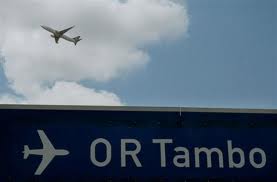On the opening day of the 2013 Public-Private Infrastructure Forum held in Gauteng, Nazir Alli, CEO of South Africa National Road Agency Limited (SANRAL) asked why the rural poor should be expected to pay for the country’s urban highways.
Only 2% of South Africa’s 155 000 km of surface road are currently tolled, including the 210km falling within the controversial Gauteng Freeway Improvement Programme (GFIP). South Africa has the tenth largest road network in the world, roughly 606 000km. However, the linkage between rural and urban areas are poor and in some places non-existence. Alli says, “We need to link the rural areas to foster development but insufficient funding and systemic under investment in infrastructure has stalled projects of this nature as well as proper maintenance of existing road infrastructure.” “Not only do rural areas lack road infrastructure, but if government were to pay for GIFP through an additional fuel levy the inhabitants of these rural areas would be further penalised by having to contribute to a road network that they do not use.” “The financial burden should not be theirs to share. More empathic approach, one where the individual is not greater than the sum, should provide a holistic perspective on the user-pay principle. We need to look at the benefits versus the cost of tolling as well as the cost of society versus the cost of the individual.”“All participantsare in agreement for the need to upscale the investment in infrastructure, unfortunately this takes time and there is the further issue of who should pay for it. The public are perfectly prepared to pay for its electricity but has a different attitude when it comes to paying for the use of upgraded roads.”
The subject of the Forum is the government’s National Development Plan (NDP) particular with regard to infrastructure development and how the public and private sector can work together more harmoniously to achieve this. “A toxic gap exists between the private and public sectors and this chiasm of mistrust must be addressed to achieve any kind of success – the NDP serves as a starting block for this.” Alli concludes, ” The entire country should rally around the principles of the NDP. There are limited resources for all these ambitious plans, especially since there is a R149 billion backlog for road maintenance alone before the consideration of new projects.”






